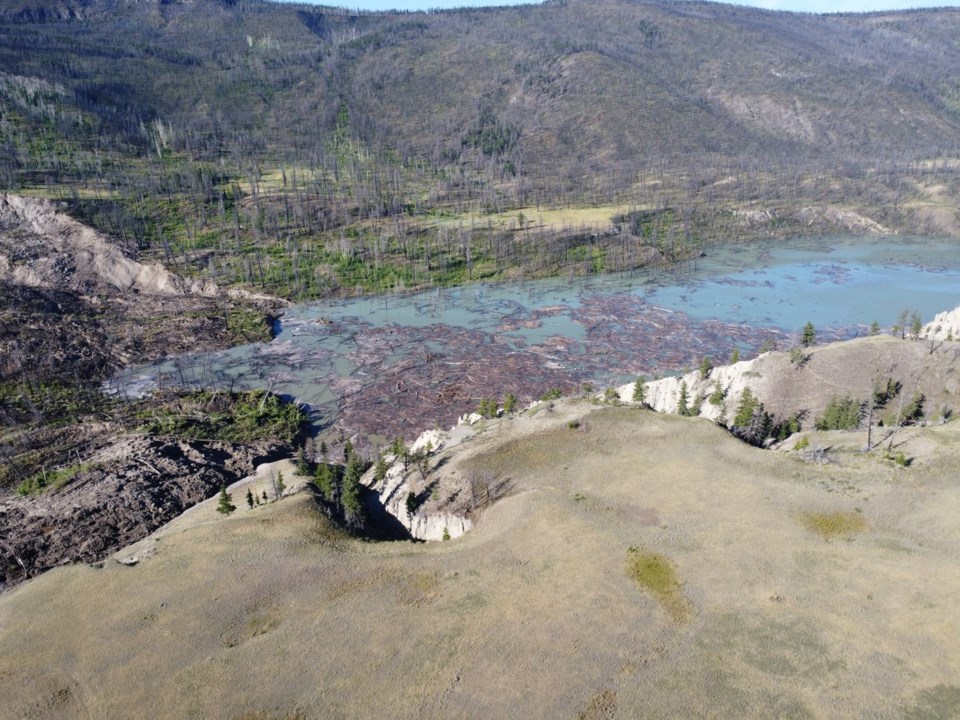A salmon task force examining the impacts of the massive landslide that temporarily dammed British Columbia's Chilcotin River last July says there have been three "significant" slope failures since then, and the site remains unstable.
A statement from the Tsilhqot'in National Government, which is part of the task force alongside the federal and provincial governments, says there is still "significant material" that could move, that would result in future blockages.
The update says the latest movement on Nov. 8 blocked the river in B.C.'s central Interior for about three hours, stirring up sediment.
It says the recent slide emphasizes the need for ongoing research, analysis and risk assessment in order to understand the current and future impacts on salmon.
The statement says there is "an extreme conservation concern" for Chilcotin River steelhead and stock assessment information is highly limited.
Still, it says recent fieldwork confirmed the presence of adult steelhead above the slide site, providing "limited evidence" that the fish have been able to pass.
Steelhead typically enter the river system in October, staying until their spawning period between the following May and June, and the Tsilhqot'in National Government says it will conduct additional fieldwork to gather data next spring.
"Given the months-long period that adult steelhead spend in the Chilcotin watershed, water quality and flow impacts from the initial slide and ongoing sloughing may have specific impacts on this population," the statement says.
The Nov. 14 update adds that Fisheries and Oceans Canada is leading an assessment to quantify the effects of the slide on migrating salmon, and it's also planning an assessment to evaluate changes to the river's channel.
The slide in Farwell Canyon, south of Williams Lake, B.C., dammed the river and created a lake about 11 kilometres long behind the mass of earth and debris.
It took nearly a week before the material broke free, sending a torrent of water and broken trees downstream, while prompting numerous flood advisories.
The Tsilhqot'in National Government says aerial monitoring shows the distribution of Interior Fraser coho in the Chilko River, a tributary of the Chilcotin, is "typical" and there is no evidence of unusual spawning behaviour.
It says another flyover this month will inform the final return estimates.
"Information to date shows no red flags regarding significant impacts to (Interior Fraser coho) migration from the Chilcotin landslide," the statement says.
This report by The Canadian Press was first published Nov. 20, 2024.
Brenna Owen, The Canadian Press




